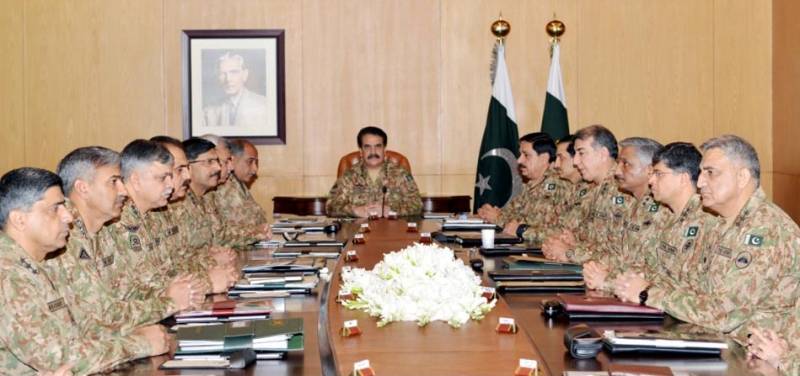Khurram Agency is one of the most sensitive tribal areas and borders three Afghan provinces. At one point, it was one of the key routes for militant movements across the border. It is now a continual warzone, and at least four security men were killed in an explosion targeting a convoy of security forces on Tuesday alone. This is part of the aftershock of Operation Zarb-e-Azb and one can be sure we will continue to hear of these attacks in the tribal areas. The attack is not surprising, and the question, in the backdrop of the operation and the National Action Plan is: when will it all end?
Do we have any time-line at all planned out? Surely, the military would have financial and other interests in the relevance an army operation gives them. They have stakes in the continuation of the war for as long as possible. Why would they be in a hurry to end a conflict that gives them almost unchecked power on matters of the state? The Corps Commanders’ Conference held at General Headquarters on Tuesday to review the whole situation might have dealt with the intricacies of fighting the war, but it is doubtful it addressed a time-line, or the need for a quick end to the violence. And yet, after the government’s vote of no confidence in itself and the democratic process (vis-a-vis military courts), the army being at the helm of affairs helps the country sleep a little better at night. Yet, is this how it should be, even during war? Of course not. Should we feel proud of ourselves? Absolutely not. The PMLN government is compromising repeatedly, handing away layer upon layer of its own power to an institution that has time and again misused it. And in the present state of war, the army now reigns supreme over the legislature, over the judiciary and public narratives on security. How will the war end when the men who need war most are running the show with the civilian setup nowhere in sight?
Friday, April 19, 2024
Vested War

Govt encouraging investments in ICT: Shaza
April 19, 2024
Appointed
April 19, 2024
World poultry expo to be held at Gul Mukai Palace
April 19, 2024
KP govt decides to develop gemstone sector to boost exports
April 19, 2024
Hepatitis Challenge
April 18, 2024
IMF Predictions
April 18, 2024
Wheat War
April 18, 2024
Rail Revival
April 17, 2024
Addressing Climate Change
April 17, 2024
Justice denied
April 18, 2024
AI dilemmas unveiled
April 18, 2024
Tax tangle
April 18, 2024
Workforce inequality
April 17, 2024
New partnerships
April 17, 2024
ePaper - Nawaiwaqt
Advertisement
Nawaiwaqt Group | Copyright © 2024





